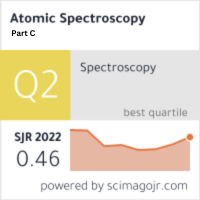Approaches for sustainable production of third-generation biofuel from selected microbial strains
Keywords:
algae, microalgae, biofuels, bioethanol, biogas, biodiesel, biohydrogenAbstract
Because of their renewable nature, low carbon impact, and ability to counteract climate change, biofuels have emerged as one of the most promising alternatives to traditional fossil fuels. Though several forms of biofuels, such as solid, liquid, and gaseous biofuels, have been created over the years, they have not always lived up to expectations in terms of efficiency and cost-effectiveness. Third-generation biofuels from algal biomass have recently come under scrutiny due to their potential as a viable alternative bio resource to the shortcomings of earlier generations of biofuels. Due to its high lipid content, rapid growth rate, and adaptability to a broad variety of conditions, including wastewater, brackish water, and saltwater, algal biomass is a promising source of biofuels. Biodiesel, bioethanol, biogas, and biohydrogen are just some of the biofuels that might be made from algae, and there are many more useful byproducts as well. Current studies using algal biomass for biofuel production aim to improve conversion efficiency and cut production costs. Several different methods, such as pyrolysis, gasification, fermentation, and hydrothermal liquefaction, have been developed for processing algal biomass.
When organic matter is heated to high temperatures in the absence of oxygen, a bio-oil is produced that may be further processed into a variety of liquid biofuels. Another method for transforming biomass into a form usable for generating power or liquid biofuels is gasification. Hydrothermal liquefaction turns wet biomass into a crude oil-like material, whereas fermentation employs microorganisms to transform carbohydrates into bioethanol or biogas. Despite its many benefits, algal biomass for biofuel production still faces a number of obstacles. The high cost of production is a big obstacle because of the high price of energy and the labour intensive nature of planting, gathering, and processing. Additional study is needed to optimise the conversion process and enhance the efficiency of algal biomass for biofuel production, and there is a shortage of large-scale commercial production facilities. The high lipid content, rapid growth rate, and adaptability of algal biomass make it a potentially useful source of biofuels. The entire potential of algal biomass for biofuel production may be realised via the development of efficient and cost-effective conversion technologies, which will ultimately lead to a sustainable and secure energy future.



